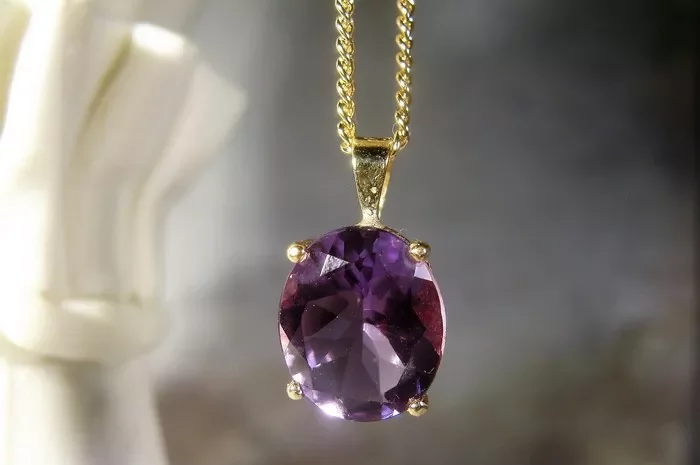Green amethyst, also known as prasiolite, is a relatively rare variety of quartz. It is a gemstone that has unique characteristics and potential uses. While it is related to traditional amethyst, its green color sets it apart in terms of both appearance and certain properties.
Color Origin and Characteristics
Color Formation
The green color of green amethyst is not a natural color for quartz in most cases. It is typically the result of heat treatment. Natural amethyst, which is purple due to the presence of iron and irradiation in the crystal lattice, can be heated to a certain temperature range. This heat treatment causes a change in the crystal structure and the color – related elements. The iron that gives amethyst its purple color is altered in a way that results in a green hue. The exact temperature and duration of the heat treatment can affect the intensity and quality of the green color.
Visual Appearance
Green amethyst has a distinctively soft and appealing green color. It can range from a pale, almost mint – green to a deeper, more emerald – like green. The color is often quite uniform throughout the crystal, especially in well – treated specimens. In terms of crystal structure, it shares the trigonal structure of quartz. The crystals can be faceted into beautiful gemstones, and when cut, they exhibit a pleasing sparkle due to the high refractive index of quartz.
Metaphysical and Healing Properties (from a Folklore Perspective)
Spiritual Significance
In some spiritual and metaphysical beliefs, green amethyst is associated with growth and renewal. It is thought to have a connection to nature and the energy of growth. Some believe that it can help in spiritual development, similar to how plants grow and develop. It is said to enhance one’s connection to the earth and the natural world, promoting a sense of grounding and stability.
Healing Properties
In the realm of alternative healing and crystal therapy (while not scientifically proven), green amethyst is sometimes believed to have healing properties. It is thought to be beneficial for the heart chakra. According to these beliefs, it can help with emotional healing, particularly in relation to matters of the heart such as love, compassion, and forgiveness. It is also believed to have a calming effect on the nervous system, reducing stress and anxiety. However, it is important to note that there is no scientific evidence to support these claims.
Use in Jewelry
Design Versatility
Green amethyst is highly valued in the jewelry industry for its unique color. It can be used in a variety of jewelry designs. In rings, it can be the centerpiece of a solitairesetting, creating a fresh and different look compared to traditional diamond or colored gemstone rings. In necklaces, it can be strung with other gemstones or pearls to create a multi – colored and eye – catching piece. It is also suitable for use in earrings, where its green color can add a touch of elegance and novelty.
Compatibility with Metals
Green amethyst pairs well with different metals. When set in white gold or platinum, its green color stands out and creates a modern and sophisticated look. When combined with yellow gold, it can give a warmer and more traditional appearance. The hardness of green amethyst (Mohs hardness of about 7) also makes it suitable for jewelry settings, as it is relatively resistant to scratching during normal wear.
Market and Value Considerations
Rarity and Demand
Due to its relative rarity compared to traditional amethyst, green amethyst can command a higher price in the market. The demand for unique and colored gemstones has been increasing in recent years, and green amethyst fits this trend. Its scarcity, combined with its appealing color, makes it a desirable gemstone for collectors and jewelry enthusiasts alike.
Quality Factors
The value of green amethyst depends on several quality factors. Color intensity and uniformity are crucial. A deeper and more uniform green color is generally more valuable. Clarity is also important; gemstones with fewer inclusions are more highly prized. Additionally, the cut of the gemstone affects its overall appearance and value. A well – cut green amethyst will show off its color and sparkle to the best advantage.
Conclusion
Green amethyst is a fascinating gemstone with unique characteristics. While it has some associated beliefs in the metaphysical and healing realms, it is mainly valued in the jewelry industry for its color, design versatility, and relative rarity. Understanding these aspects is important for both jewelry appraisers and those interested in this beautiful gemstone.
Related topic:
- Amethyst: What to Avoid and How to Preserve Its Value
- Is Amethyst a Positive or Negative Gemstone?
- Is Amethyst Worth Any Money


